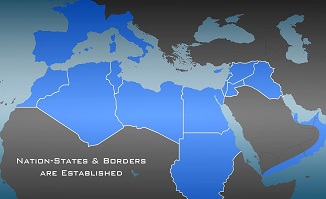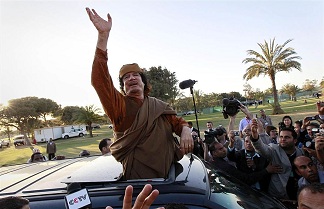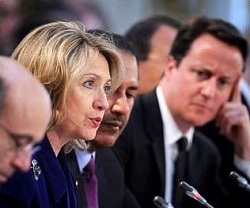Libya as a model for redividing the Middle East
A column by Philip Zelikow entitled “Gaddafi’s fall will renew the Arab spring,” published on the Financial Times web site Monday, provides a glimpse into the far-reaching aims being pursued by Washington and the other major imperialist powers in their supposedly “humanitarian” intervention in Libya.
Zelikow is a former State Department counselor under Condoleezza Rice in the George W. Bush administration and a former advisor on the National Security Council under George H.W. Bush during the period of the collapse of the Soviet bloc. He is a trusted and experienced operative within the US political establishment, so much so that he was tapped to serve as executive director of the 9/11 Commission. In that position he was the individual most responsible for organizing a cover-up of the US government’s role in the September 11, 2001 terrorist attacks.
Close to the Project for a New American Century and one of the authors of the Bush doctrine of preemptive war, Zelikow has intimate experience in both the theory and practice of US imperialism’s drive to impose its hegemony over the Middle East.
Zelikow begins his column by debunking the arguments of those on the Republican right who opposed the Libyan war as an example of “liberal interventionism.” He dismisses this concern, saying it is merely a misunderstanding “fed by some rhetoric, especially from the government.” The war, he writes, was launched because of Libya’s particular “history and a geography that well justified hard-headed calculations by the US, Britain, France and many other countries that they should seize this opportunity to help the rebels get rid of this particular demented regime.”
In other words, the major imperialist powers saw a set of circumstances in the Libyan events that allowed them to “seize the opportunity” to execute a military campaign for regime-change for the purpose of establishing firm control over the oil-rich North African nation.




























